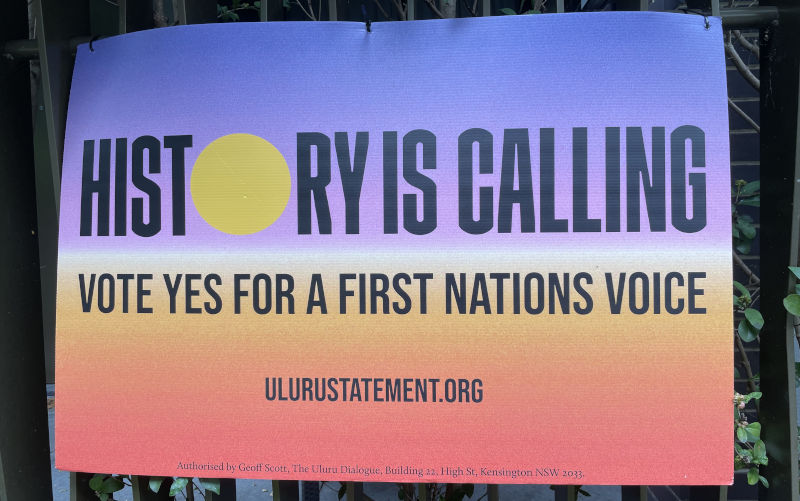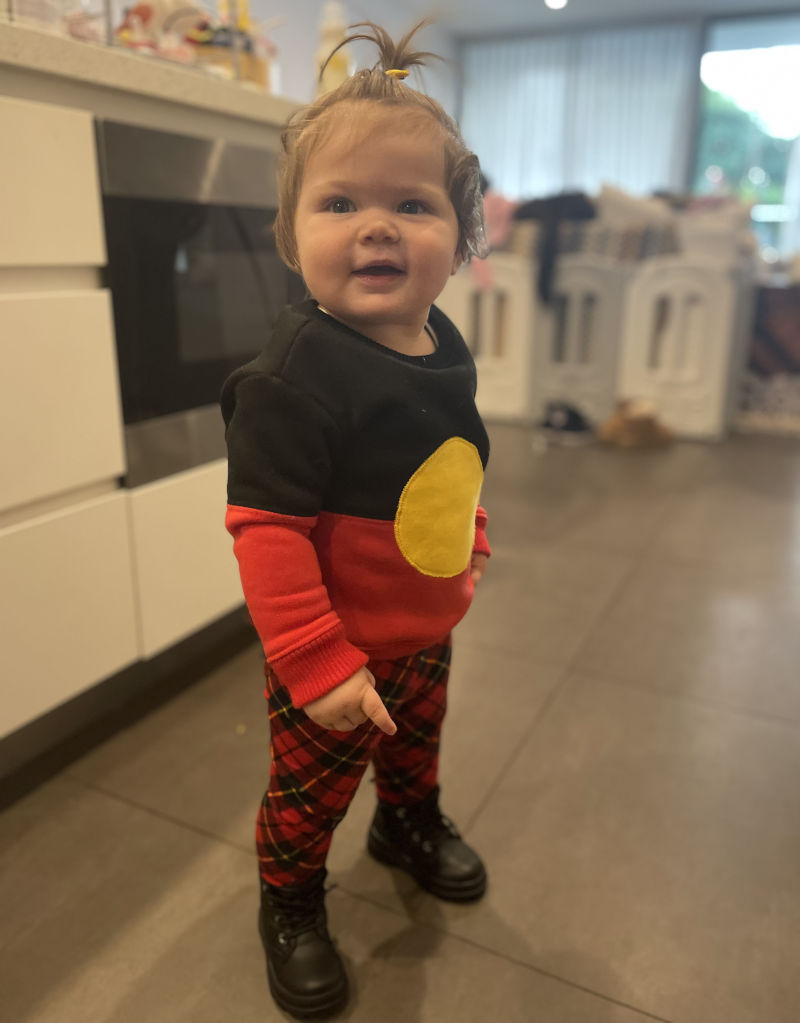Our Central Land Council overwhelmingly asks you to vote YES
October 11, 2023
For over half a century the Central Land Council has fought for the voices of Aboriginal people from the heart of our nation to be heard. Our 90-member Council overwhelmingly asks you to vote YES, because we know that when decision-makers listen to our voices we end up with policies that help us, not harm us, and money is spent wisely. - Lesley Turner, CEO, Central Land Council, NT. _
_
YES to the Voice? Stephanie Dowrick interviews Lesley Turner, CEO, Central Land Council, NT
Over recent months and weeks, some of us have come to despise the word realistic. Should we be realistic about the prospects of the Referendum this coming weekend? Should we bend low, studying the entrails of the misery-making polls or the droppings of a media largely driven by puerile cynicism? Should we shrink into the same-old, same-old? Or shrug? I would say not. Whatever is or what could be great, whatever takes us towards lasting change for the better, has only ever been achieved by visionaries: those with fresh ideas, hope and passion firing them up, then taking the rest of us forward with them. So many exceptional leaders of great vision have emerged in this last year as we approached this Referendum question. Arrernte man Les Turner is one of them. But lets turn first to the question itself on which our nation will vote.

The question: A Proposed Law: to alter the Constitution to recognise the First Peoples of Australia by establishing an Aboriginal and Torres Strait Islander Voice. Do you approve this proposed alteration?
The answer your answer - is Yes. Or No. Then, if we dig fractionally more deeply, we discover that the proposed establishment of such a Voice coming directly from the Uluru Statement of the Heart, itself emerging from 15-plus years of tireless, extensive, on-the-ground consultation is intended to be Constitutionally enshrined so it cant be whisked away by an incoming government indifferent or hostile to First Nations legitimacy or concerns. Yet, at the very same time, this Voice when established - remains an advisory body that can draw on the diverse experiences of its members but cannot dictate to the government of the day, even on matters of direct concern to Aboriginal and Torres Strait Islander peoples (the only matters on which the Voice has a voice).
To clarify further the intention of the Voice and how it can be effective, even transformative in the lives of the First Peoples of Australia I caught up with Lesley Turner, an Arrernte man born and raised in Alice Springs and currently CEO of the Central Land Council. Before taking up that position, Les lived away from the Territory for 37 years and was, in his last position in NSW, CEO of the NSW Aboriginal Land Council. These are his words.
For over half a century the Central Land Council has fought for the voices of Aboriginal people from the heart of our nation to be heard. Our 90-member Council overwhelmingly asks you to vote YES, because we know that when decision-makers listen to our voices we end up with policies that help us, not harm us, and money is spent wisely.
There is a need for change. The current system in Aboriginal affairs in this country has gone backwards. We want a direct line to the Parliament and the Executive to advocate and provide advice on policy, programs and legislation that affect Aboriginal people in this beautiful country.
Every week we deal with people from government agencies who talk at our people in the name of consultation and tell us how to fix our problems. It is only when local knowledge and experience is heard and taken seriously that we see positive change on the ground.
Governments are slow to change their ways, and quick to default back to comfortable ways of doing things. We know that unless there is a significant shift in the way they do business like a requirement to listen to our advice and include us when they make policies or programs that affect usgovernment officials will continue to think they know best for our lives.
A good example is the new Aboriginal Leadership Group set up recently in Alice Springs. We provide advice on the investment into Central Australia announced by the Federal Government earlier this yearfunding for women, youth, crisis accommodation, jobs, infrastructure etc. We have a good broad membership from across the community. And so far, it is working very well.
An example of the opposite, where we really need to be heard, is in education. We at Central Land Council want governments to listen to us and take action to prevent a total collapse of the government schools in remote areas, which are starved of funds and unable to support the needs of all our children. We have a big education bureaucracy based in Darwin, but we fund remote schools based on the number of students who attend at least four days a week. In our region, we know that attendance is a major issue, and only about 40 percent of students attend at least four days a week.

So, some schools only get about a third of the funding they need, based on enrollments. How is this supposed to work?
Instead of helping address disadvantage, and the scandalous education gap that exists with our kids, we take away school funding and drive the schools into the ground. Also, our students need bilingual education, recognizing that so many kids are expected to use English for the first time when they get to school. We only do bilingual in three locations in Northern Territory. Education specialists know that learning to read and write in your first language helps children to enjoy coming to school. It also helps them to learn English. Many of our children grow up in two very different worlds, and we need two-way education. We urgently need the government education system to listen to our voice.
Our experience on the ground is the Central Land Council has visited over 30 remote communities in our region and spoken to more than 2,400 people about the Referendum. In terms of the information we provide, we tell people what the Referendum is, what the proposal is, what the question is, how the parliament sets up the Voice, what the double majority means, and we answer peoples questions.
Our experience is that people want to know, and once they get the facts, they want to vote YES. They appreciate the information being provided and often invite us back to talk further. They also tell us about the conspiracy theories and misinformation they are hearing, which is often very disturbing. Once people get the facts, they want to vote YES. We had a Council Meeting at Yulara Pulka last week. The Electoral Commission was at Yulara, and afterwards our Council cast their vote at the place where the Uluru Statement was finalised. From what we hear, the overwhelming majority of delegates voted YES.
For most Australians, this proposal will make little or no difference to their daily lives. But for us, it means respect for our place in this land and an opportunity to be heard. With this Referendum, Australians have an opportunity to open their hearts and minds to the art, languages, knowledge, learnings from the oldest continuing culture in the world: our way of understanding our place in this country and with each other.
My huge thanks to Les for these words, and for the decades of practical care and wisdom that lie behind them. I am proud to be joining with so many visionaries moving us forward: to be voting YES.
Join Stephanie Dowrick, Jane Caro, Lynette Riley and Beverly Baker on Thursday 10 October at 2:30pm AEDT in a discussion of Older Women for the Voice.
